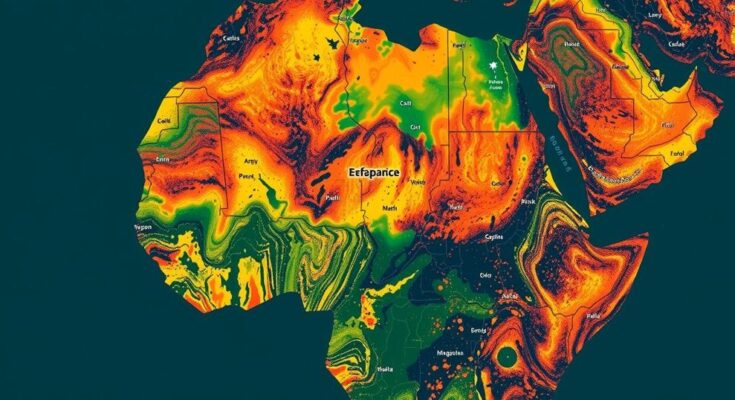The Central African Republic is facing significant challenges due to the interplay of climate change and ongoing conflict, highlighting vulnerabilities stemming from poor governance and resource mismanagement. Although security has seen slight improvements, tensions remain high due to armed group clashes, the influx of transhumant pastoralists, and pressures from the conflict in Sudan. To effectively address these issues, the international community is encouraged to undertake a range of recommended actions.
The Central African Republic (CAR) is currently grappling with the compounded challenges of climate change and ongoing conflict. The nation is experiencing significant vulnerabilities due to its fragile socio-ecological systems, which are exacerbated by ineffective governance and mismanagement of natural resources. While there have been strides in improving the security situation, it remains precarious, with various factions such as the Coalition of Patriots for Change (CPC), local self-defence groups, and outlaw bands frequently engaging in violent confrontations with government forces and foreign mercenaries, including those affiliated with the Wagner Group, now known as Africa Corps. The situation is made even more complex by the effects of climate change, which are pushing transhumant pastoralists into CAR earlier in the grazing season, thereby escalating tensions among local communities. Moreover, the humanitarian crisis has been intensified by the spillover of conflict from neighboring Sudan, particularly affecting the Vakaga and Haute-Kotto prefectures. To address these intricate and interrelated issues, the international community is urged to undertake a series of focused actions aimed at stabilizing both the climate and security landscape in the Central African Republic.
The Central African Republic is a nation marked by a high degree of vulnerability to climate change, stemming from its socio-economic instability and inadequate governance structures. The absence of a strong state presence has led to ineffective management of natural resources, which negatively impacts community resilience. Additionally, the ongoing conflict has created an environment where security is tenuous at best. Although there have been recent improvements in the security landscape, violence persists among various armed factions, creating a continuous cycle of instability. The added pressures from climate change—coupled with regional conflicts—pose significant challenges, particularly as migrating herders venture into CAR in search of pastures, which leads to heightened tensions among local populations. These dynamics are further complicated by the impacts of violence spilling over from conflicts, such as the ongoing war in Sudan, placing significant strain on CAR’s humanitarian situation.
In conclusion, the Central African Republic stands at a critical juncture where the interplay of climate change and ongoing conflict poses serious challenges to regional stability and humanitarian conditions. Given the complex vulnerabilities the nation faces, it is imperative that the international community mobilizes to implement recommended strategies that address both security and climate resilience. Without a comprehensive approach that considers these interconnected issues, the prospects for peace and recovery in the CAR remain uncertain.
Original Source: reliefweb.int




